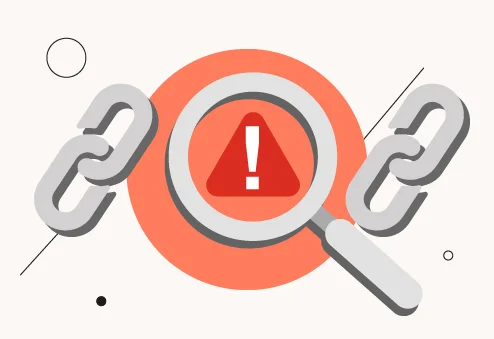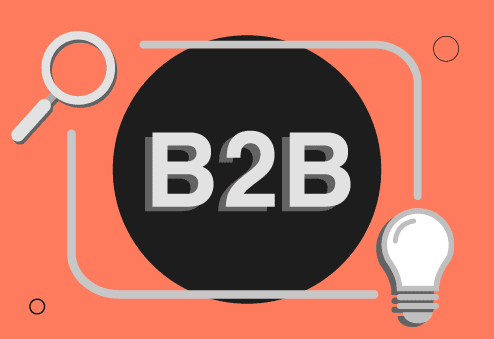Explore the top business communication solution providers for 2025. Find the best tools to streamline your business communication.

Over 75% of businesses worldwide are expected to have either adopted or plan to adopt VoIP and unified communication solutions by the end of 2025. The rapid shift from outdated legacy systems to cloud-based, digital-first platforms is not just a trend; it’s a necessity in today’s fast-paced business world.
In 2025, seamless communication is no longer a “nice to have”, it’s the lifeline of every business operation. With hybrid and remote work models becoming standard practice, teams are scattered across time zones, customers expect real-time support, and collaboration needs are at an all-time high.
Whether you’re running a startup or managing a global enterprise, the right business communication solution can help bridge gaps between teams, enhance customer satisfaction, and boost overall productivity.
| What’s Coming Next?👀 What defines a business communication solutionKey features you should look for in 2025A detailed list of the top 10 business communication solution providersA comparison table to make your decision easierTips on how to choose the right solution for your unique need |
Let’s first break down what exactly falls under the umbrella of a modern business communication solution.
What is a Business Communication Solution?
A business communication solution refers to any digital tool or platform that enables effective internal and external communication for a business. It ensures information flows freely between teams, departments, and clients, no matter where they are.
Here’s what typically falls under the umbrella of business communication tools
- VoIP (Voice over Internet Protocol): Enables businesses to make and receive calls over the internet, replacing traditional phone lines.
- Unified Communications (UCaaS): A centralized system integrating voice, video, messaging, conferencing, and collaboration tools.
- Customer Relationship Management (CRM): Tools that track and manage customer interactions and history.
- Video Conferencing Tools: Platforms for virtual meetings and webinars.
- Instant Messaging & Team Collaboration Apps: Allow quick communication and file sharing among team members. A content marketing agency can use these tools to streamline campaign discussions and share creative assets in real time.
- Contact Center Solutions: Help desk, ticketing, and omnichannel customer support systems.
A good communication tool not only keeps your team connected but also helps deliver better customer experiences, boosts productivity, and supports business scalability.
In 2025, if your communication tools are not cloud-based, secure, and integrated, you’re losing out. Businesses must adopt versatile platforms that adapt to remote needs, customer demands, and real-time collaboration. Choosing a platform that includes appointment booking software ensures scheduling is seamless and reduces back-and-forth with clients.
Let’s explore the features that truly matter when choosing your ideal communication solution.
9 Key Features to Look for in a Business Communication Tool
When you’re evaluating business communication solutions, it’s easy to get caught up in shiny dashboards and flashy features. At its core, the ideal internal chat tool for business should simply help your team collaborate more effectively, work smarter, and stay connected, regardless of their location.
So, how do you know which business communication solution is the right fit for your team?
Here are the key features you should keep an eye out for:
1. Unified Communication Capabilities
Gone are the days when phone calls and emails were enough. Today’s business communication solutions need to bring everything, voice, video, messaging, screen sharing, and file sharing, under one roof. A unified interface reduces app switching and enhances productivity across teams. Choosing an all-in-one software makes it easier to manage communication without juggling multiple platforms.
2. Security and Compliance
Your communication tool should protect your data like a vault. Whether it’s end-to-end encryption, multi-factor authentication, or compliance with standards like GDPR, HIPAA, or ISO/IEC, security should be a non-negotiable requirement. If you’re in a regulated industry, this is even more critical.
3. Mobility and Accessibility
Work doesn’t just happen at the office anymore. Your business communication solution should offer full functionality across both mobile and desktop devices, with seamless syncing. Whether your team is working from home, traveling, or in a hybrid setup, staying connected shouldn’t be a hassle. And when employees do come into the office, trusted desk booking software makes it simple to reserve a workspace in advance, ensuring flexibility and reducing friction in hybrid schedules.
4. Scalability
Your business may start small, but your business communication solution should grow with you. Look for platforms that can scale easily, whether you’re adding users, integrating new departments, or expanding globally.
5. Integration with Other Tools
A communication platform that integrates seamlessly with other systems, such as CRM, project management tools, or helpdesk software, can significantly enhance workflows. The best business communication solutions integrate effortlessly with your existing tech stack.
6. Ease of Use and User Experience
If your team needs a training manual just to send a message or start a video call, that’s a red flag. Choose a business communication solution with an intuitive interface that requires little to no onboarding. A clean UX saves time and boosts user adoption.
7. Customization and Control
Every business is unique, and so are its communication needs. Your ideal solution should allow for customizable workflows, branding, user roles, and permissions, giving you complete control over how it’s used.
8. Analytics and Reporting
Data-backed decisions are smarter decisions. A robust communication solution for businesses will provide detailed analytics, including call logs, response times, usage patterns, and user engagement. These insights help optimize operations and identify areas for improvement.
9. Reliable Support
Even the best tools hit a snag. When that happens, fast and efficient support is crucial. Look for business communication solutions that offer 24/7 customer support, detailed documentation, and a responsive ticketing system.
Whether you’re a startup looking for your first tool or an enterprise upgrading from a legacy system, these features form the foundation of an effective business communication solution.
Remember, it’s not just about communication; it’s about smarter, faster, and more secure collaboration that fuels business growth.
Next, let’s dive into the top solution providers you should consider this year.
Leading 10 Business Communication Solution Providers in 2025
With numerous options available, how do you determine which provider best suits your needs?
To help you make an informed decision, we’ve rounded up the top 10 business communication solution providers for 2025, each offering a unique blend of features, flexibility, and future-ready technology to keep your teams connected and productive.
1. Ecosmob Technologies
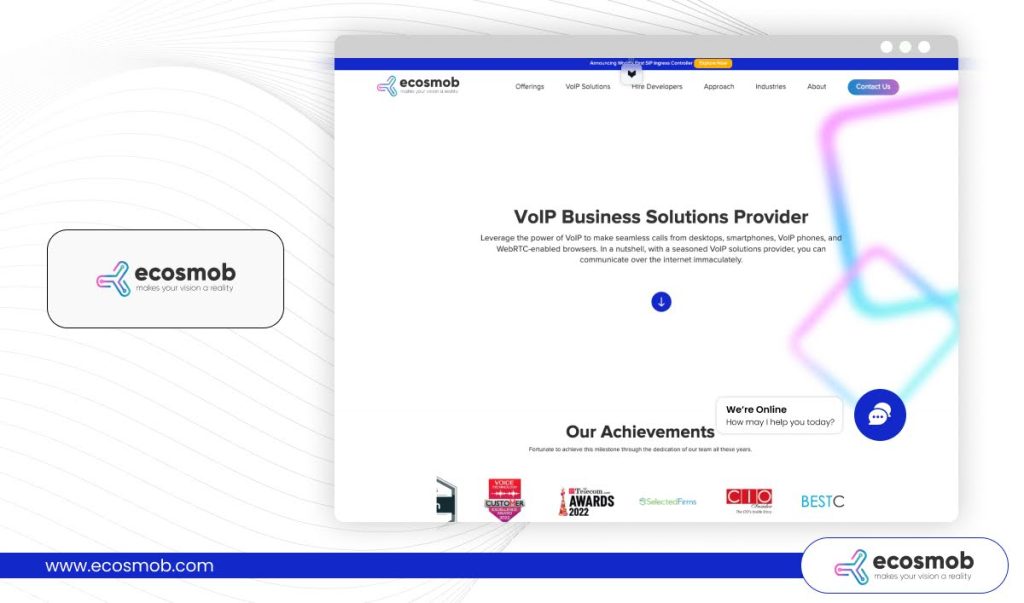
Ecosmob Technologies stands out as a global leader in VoIP-based business communication solutions, recognized for its robust and customizable platforms tailored to diverse industry needs. With over a decade of experience, Ecosmob provides cutting-edge VoIP software development services, covering Hosted PBX, SIP trunking, Unified Communications (UCaaS), and real-time collaboration tools. Their client-centric approach and deep technical expertise make them a preferred choice for enterprises seeking reliable, scalable, and secure communication solutions for business.
Top Features:
- Hosted PBX solutions
- SIP trunking services
- Unified Communications as a Service (UCaaS)
- Intelligent IVR systems
- WebRTC-based audio and video conferencing
- Session Border Controller (SBC) development
- VoIP mobile and desktop apps
- Custom CRM and API integrations
Best for – Mid to large-sized enterprises seeking AI-driven VoIP and unified communications systems.
Pricing – Custom quote based on project requirements.
Pros – Highly customizable solutions tailored to industry-specific needs, Strong technical support and maintenance services, Expertise in VoIP, AI, and real-time communication tools
Cons – Custom pricing may not suit small startups or freelancers. Not a one-size-fits-all platform
2. RingCentral
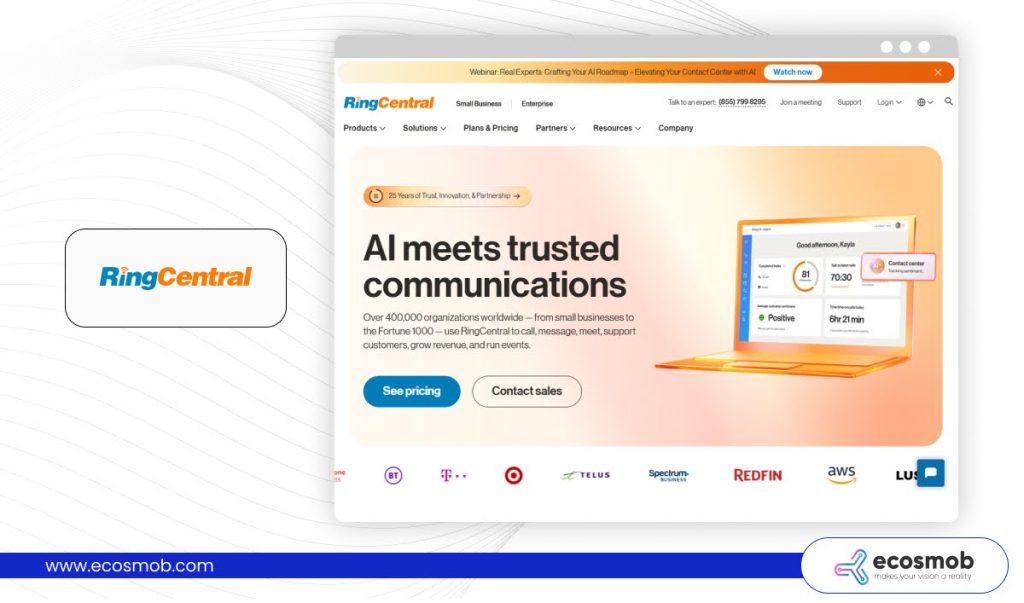
RingCentral is a cloud communications giant that offers a comprehensive suite of business communication solutions, including voice, video, messaging, and contact center capabilities. Designed for hybrid and remote teams, RingCentral’s platform helps businesses manage workflows efficiently with seamless integrations and a user-friendly interface.
Top Features:
- Cloud-based phone system
- Video conferencing and webinars
- Team messaging with task management
- Call analytics and AI transcription
- Integration with Microsoft 365, Google Workspace, and Salesforce
- Mobile and desktop apps
Best for – Businesses of all sizes needing an all-in-one communication platform.
Pricing – Starts at $20/user/month (Core Plan).
Pros – Reliable and scalable cloud communication, Robust third-party integrations, Strong uptime and global availability
Cons – Some features locked behind higher-tier plans, Learning curve for new users, Limited customization for specific workflows
3. Zoom
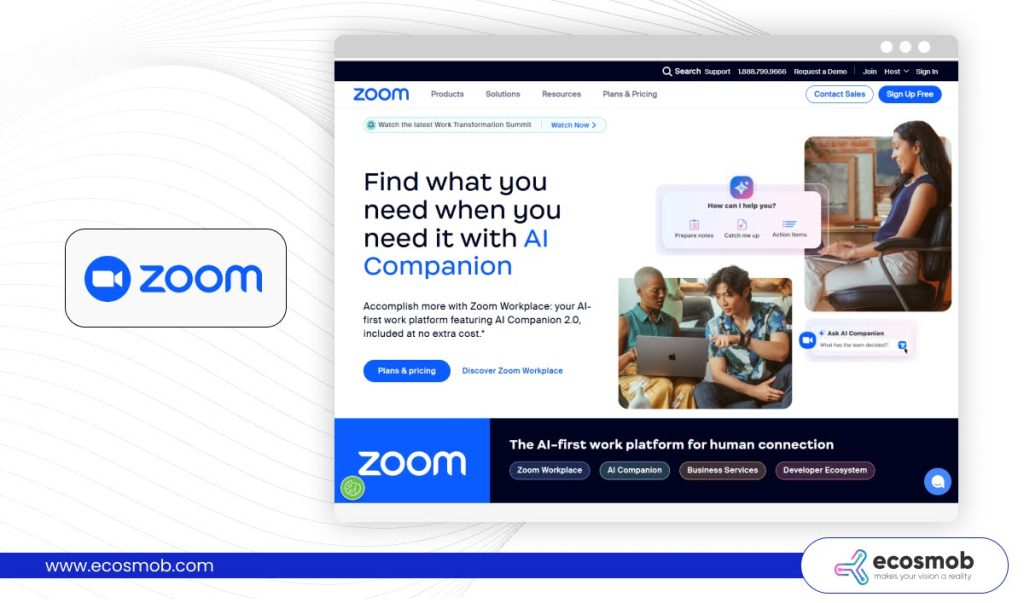
Originally known for video conferencing, Zoom has rapidly evolved into a unified business communication solution offering chat, VoIP, webinars, and collaboration tools under one umbrella. It combines simplicity with powerful, enterprise-grade features, making it a go-to solution for both remote teams and enterprises.
Top Features:
- HD video conferencing
- Zoom Phone (cloud telephony)
- Zoom Chat (team messaging)
- Zoom Webinars and Events
- Breakout rooms and screen sharing
- Integration with third-party tools like Slack, Salesforce, and HubSpot
Best for – Organizations prioritizing video-first communication with hybrid workforces.
Pricing – Free basic plan; paid plans start at $14.99/month/user.
Pros – Intuitive and user-friendly UI, Reliable performance even with low bandwidth, Excellent scalability, and brand trust
Cons – Phone features may lag behind dedicated VoIP providers, can get expensive with add-ons, Basic plan limits session duration
4. Microsoft Teams
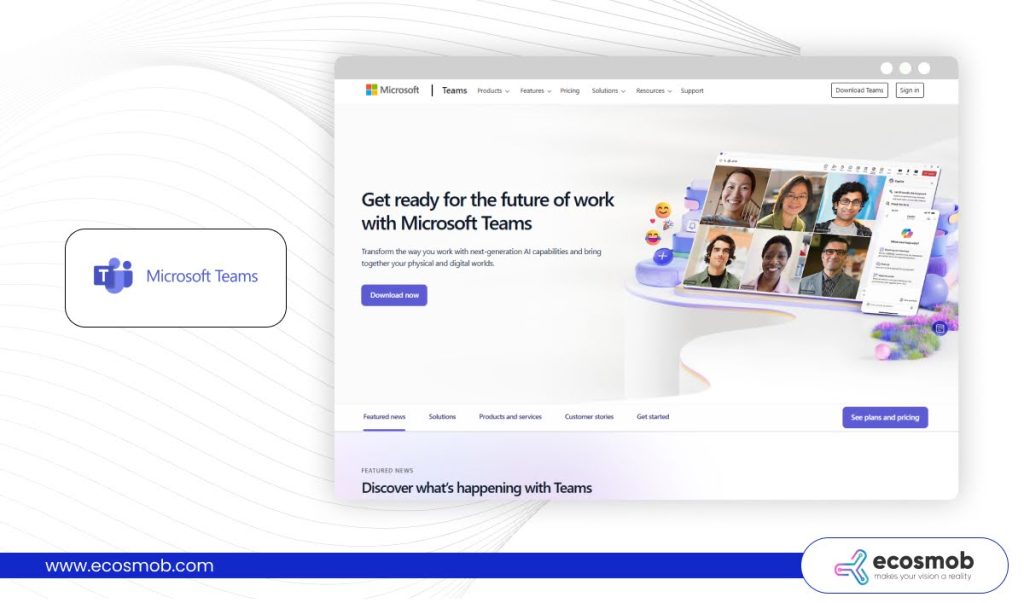
Microsoft Teams is a core component of Microsoft 365, providing a tightly integrated communication solution for businesses. It combines chat, meetings, file sharing, and business apps under one platform. Ideal for businesses already using Microsoft tools, Teams promotes a unified digital workplace environment.
Top Features:
- Instant messaging and threaded conversations
- Video conferencing and screen sharing
- Deep integration with Microsoft 365 apps
- Shared calendars, tasks, and files
- VoIP phone calling and voicemail
- Enterprise-grade security and compliance
Best for – Microsoft-centric enterprises and educational institutions.
Pricing – Starts at $4/user/month (Essentials Plan).
Pros – Seamless integration with the Microsoft ecosystem, Strong enterprise security, Ideal for collaboration and document co-editing
Cons – Can feel cluttered with too many features, requires a Microsoft 365 subscription for full functionality, less flexible outside Microsoft environments
5. 8×8
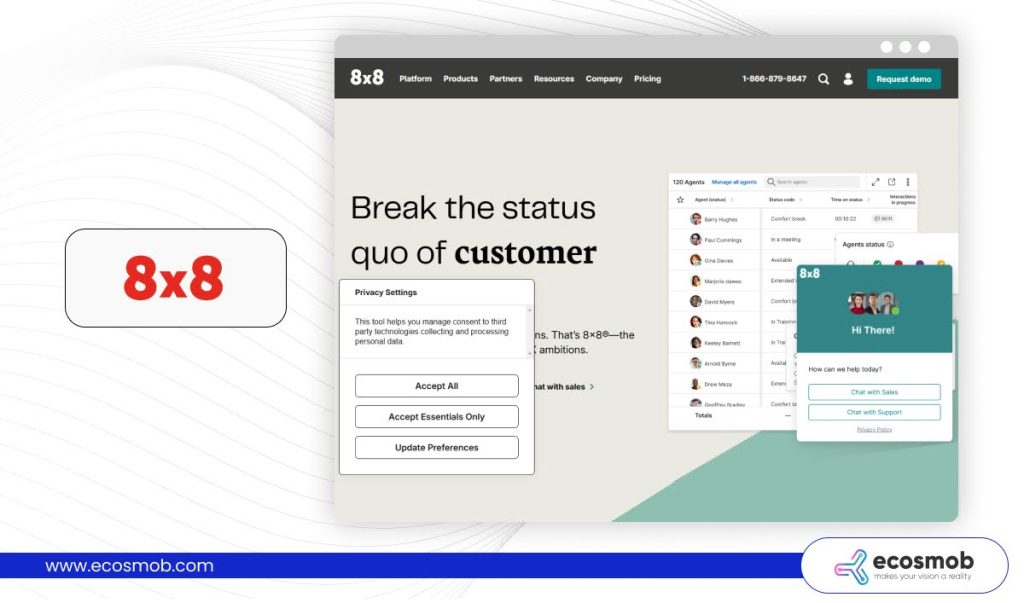
8×8 is a cloud-based business communication solution focused on providing integrated voice, video, chat, and contact center capabilities. Their all-in-one X Series platform is geared towards businesses that want to simplify operations and improve customer experiences with built-in analytics and AI tools.
Top Features:
- VoIP phone services
- HD video and audio meetings
- SMS and team chat
- Integrated contact center
- AI-powered call analytics
- Microsoft Teams integration
Best for – Mid-sized businesses with customer service teams.
Pricing – Starts at $24/user/month.
Pros – All-in-one platform with contact center options, Strong analytics and reporting features, Easy-to-use mobile and desktop apps
Cons – International calling rates vary, Complex for very small businesses, Limited free trial edition
6. Nextiva
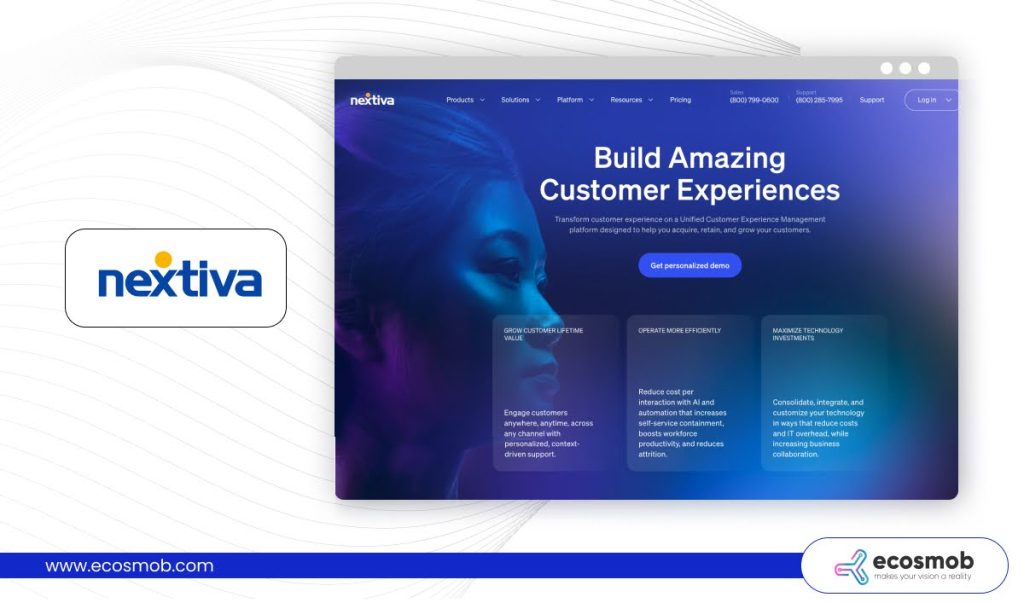
Nextiva offers VoIP and UCaaS-based communication solutions for businesses with a strong focus on simplicity, reliability, and customer service. It combines phone systems, team collaboration, CRM, and analytics in one clean interface, making it especially suitable for service-oriented businesses.
Top Features:
- Cloud-based VoIP phone system
- Built-in CRM and contact management
- Call recording and analytics
- Video conferencing and messaging
- Automated call routing and IVR
- Integration with productivity tools
Best for – Customer service-heavy businesses and sales teams.
Pricing – Starts at $23.95/user/month.
Pros – Excellent uptime and call quality, strong customer support and reputation, Ideal for customer-facing terms
Cons – Advanced features reserved for higher tiers, limited integrations compared to others, interface feels dated to some users
7. Cisco Webex
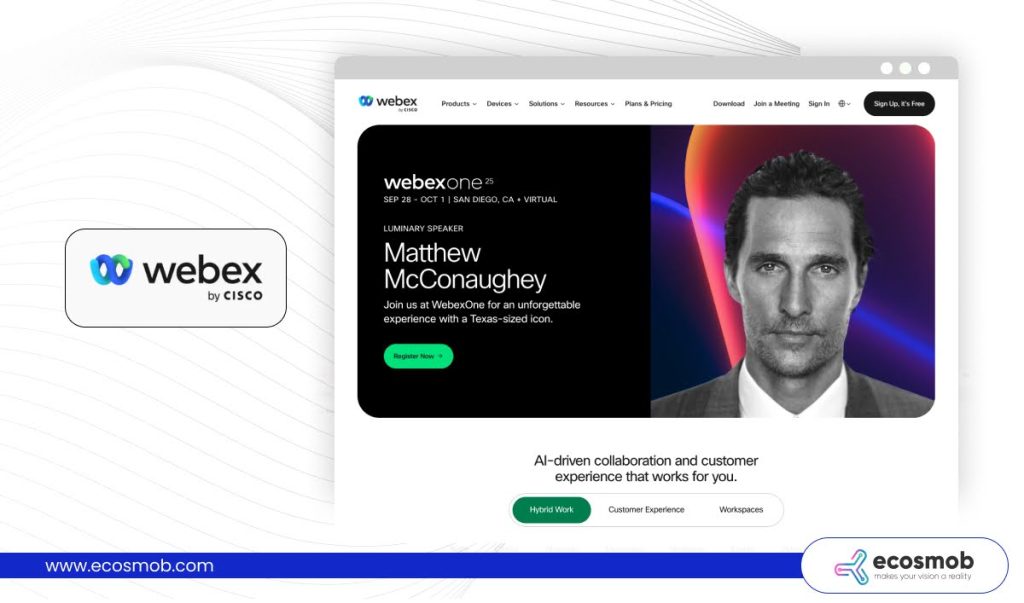
Cisco Webex is a trusted name in enterprise-grade business communication solutions, offering powerful tools for meetings, webinars, calling, and collaboration. Backed by Cisco’s security expertise, it caters to large organizations that prioritize data privacy and global collaboration.
Top Features:
- HD video meetings with AI enhancements
- Cloud calling and voicemail
- Advanced meeting controls and real-time transcription
- Whiteboarding and co-editing tools
- Strong encryption and compliance
- Integration with Microsoft, Google, Salesforce
Best for – Enterprises and highly regulated industries.
Pricing – Starts at $14.50/user/month.
Pros – Enterprise-level security and reliability, suitable for large-scale global terms, excellent AI-powered meeting features
Cons – Requires training for full features adoption, UI can feel less modern compared to Zoom, and onboarding takes time for non-technical users
8. Dialpad
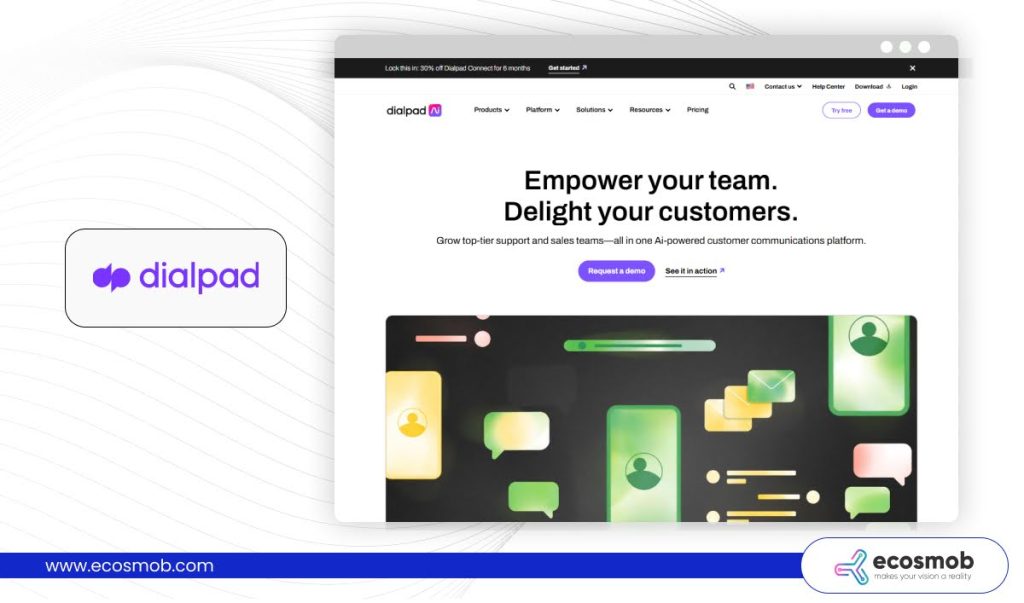
Dialpad is an AI-powered business communication solution that focuses on voice intelligence. It offers a clean and modern platform with VoIP, video conferencing, messaging, and call analytics, all backed by real-time AI transcription and coaching tools.
Top Features:
- VoIP and video meetings
- Team messaging and SMS
- AI-based call transcription and insights
- Salesforce and Microsoft 365 integrations
- Voicemail drop and call routing
- Mobile app with call switching
Best for – Tech-savvy teams and AI-focused customer support.
Pricing – Starts at $15/user/month.
Pros – AI tools for sales and support teams, sleek and modern interface, easy to use and deploy
Cons – AI features require a premium, Limited customization for workflows, and limited international support compared to competitors
9. GoTo Connect
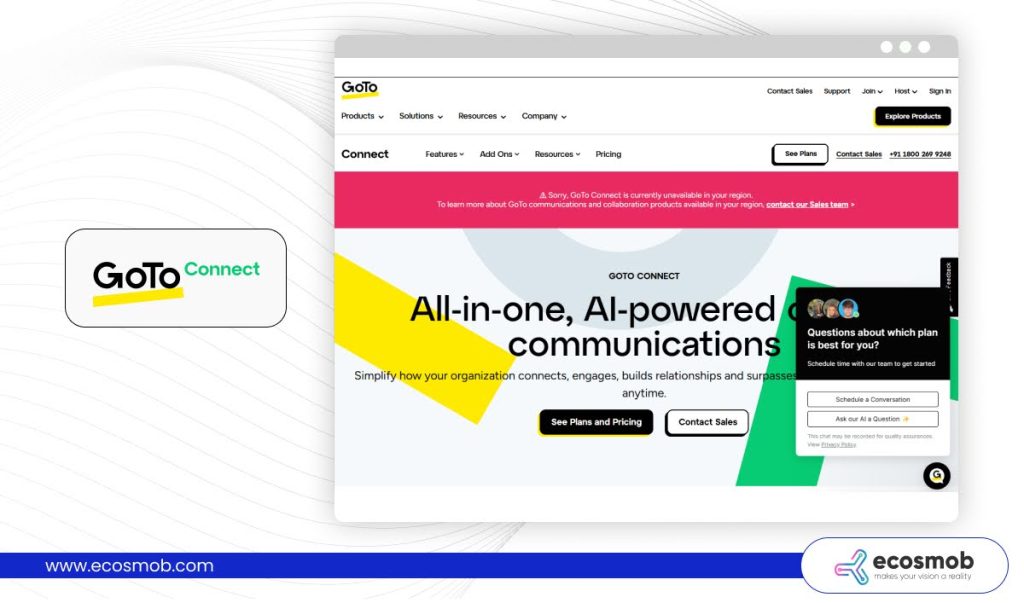
GoTo Connect is part of the LogMeIn family and offers a user-friendly communication solution for businesses, featuring VoIP, video, and messaging capabilities. It’s especially appreciated by SMBs looking for reliable performance, simplified setup, and built-in customer engagement features.
Top Features:
- VoIP business phone system
- Video conferencing and team chat
- Call routing and IVR
- Visual dial plans
- CRM integrations
- Admin and user portals
Best for – Small to medium-sized businesses and remote teams.
Pricing – Starts at $27/user/month.
Pros – Easy setup and intuitive UI, Competitive pricing for SMBs, Reliable customer service
Cons – Less suited for large enterprises, Limited advanced features for analytics, Feature set may feel basic to power users
10. Vonage Business Communications
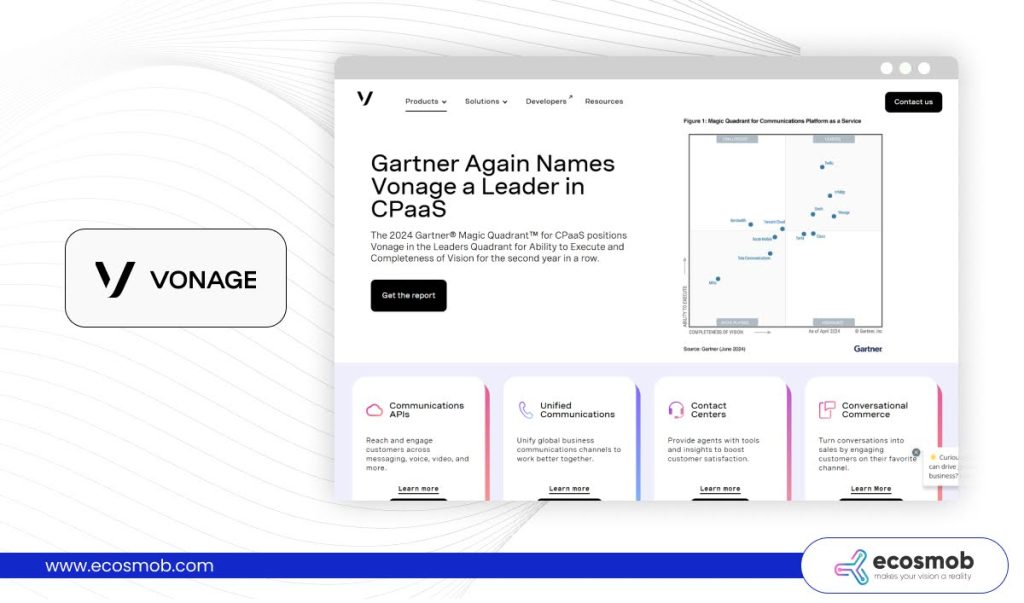
Vonage Business Communications offers flexible and feature-rich business communication solutions designed to support cloud telephony, team collaboration, and customer engagement. It’s known for its flexibility, allowing businesses to mix and match features based on their specific needs.
Top Features:
- VoIP calling and SMS
- Video meetings and team chat
- App center with dozens of integrations
- API-based customizations
- Call forwarding and mobile extensions
- Unified admin dashboard
Best for – Businesses needing flexibility and programmable communication APIs.
Pricing – Starts at $19.99/user/month.
Pros – Highly customizable plans, Rich third-party integration ecosystem, Flexible deployment and hybrid options
Cons – Support response times may vary, more expensive for advanced features, and complex pricing tiers
| Provider Name | Voice & Video | Integrations | Pricing | Security | Best for |
| Ecosmob Technologies | ✅✅✅ | ✅✅✅ | Custom | Advanced | Mid-to-large Businesses |
| RingCentral | ✅✅✅ | ✅✅ | From $20 | High | Growing hybrid teams |
| Zoom | ✅✅✅ | ✅✅ | From $15 | Moderate | Vide-centric remote teams |
| Microsoft Teams | ✅✅✅ | ✅✅✅ | Bundled with Microsoft 365 | High | Microsoft-centric organizations |
| 8×8 | ✅✅✅ | ✅ | From $24 | High | SMBs and call centers |
| Nextiva | ✅✅✅ | ✅✅ | From $18.95 | Good | Small Businesses |
| Cisco Webex | ✅✅✅ | ✅✅ | From $14.50 | Very High | Security-focused enterprises |
| Dialpad | ✅✅✅ | ✅ | From $15 | High | Data-driven teams |
| GoTo Connect | ✅✅✅ | ✅ | From $27 | Moderate | Quick setup SMBs |
| Vonage | ✅✅✅ | ✅✅✅ | From $19.99 | High | Developer-heavy companies |
Not every tool will align with your team’s specific needs, structure, or long-term goals. The key lies in identifying what truly matters to your business and filtering out the noise.
Here is how to decide which one can be a good fit for you!
How to Choose the Right Communication Tool for Your Business?
To determine what fits your business communication needs, consider the following five points. Here’s how to narrow it down:
- Start with your goals: Are you focused on internal collaboration, customer communication, or both?
- Consider your current infrastructure: Are you already using Microsoft 365? Teams might be the best fit. Want something flexible and scalable? Ecosmob is a strong contender.
- Think about your team size and future growth: Scalability is key.
- Set a realistic budget: Understand the full cost of ownership, including any additional expenses.
- Look at support and training, especially for teams new to digital tools.
Choosing the right business communication solution can elevate your entire workflow and make your organization more agile and connected.
Wrapping Up
In 2025, fast, secure, and flexible communication is the foundation of business success. From VoIP phone systems to all-in-one unified communication platforms, the right business communication solution can transform how your teams and customers connect.
Whether you’re a fast-growing startup or a large enterprise, this list of the top 10 business communication solution providers offers a great starting point. Remember:
- Choose based on your size, goals, and existing tools.
- Pay attention to integrations and security features.
- Don’t hesitate to go for a custom solution when your business demands it.
Looking for something tailored?
Ecosmob Technologies offers customizable, enterprise-grade business communication solutions that grow with your organization. With a strong focus on security, scalability, and real-time support, Ecosmob is an ideal partner for businesses seeking a robust communication solution for business in 2025 and beyond.

